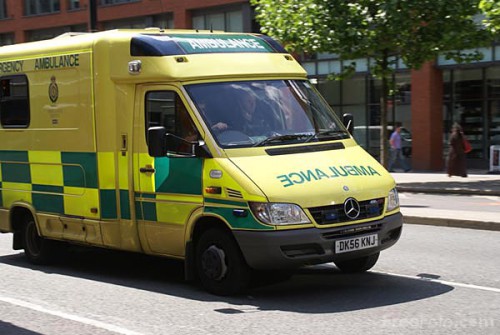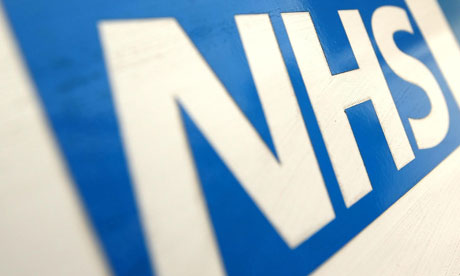Patient safety fears as council slashes health watchdog funding
Article published: Friday, March 1st 2013
Concerns are mounting over patient safety following severe cuts to Manchester’s independent health watchdog.
 Funds for Manchester’s Local Involvement Network (LINk), an independent body tasked with monitoring the city’s healthcare, were last year cut by up to 80 per cent when Manchester City Council reduced its funding from £287,000 to £80,000.
Funds for Manchester’s Local Involvement Network (LINk), an independent body tasked with monitoring the city’s healthcare, were last year cut by up to 80 per cent when Manchester City Council reduced its funding from £287,000 to £80,000.
Now, the council plans to set up a new organisation, Healthwatch Manchester, on the same small budget. Healthwatch will also have to fulfil added functions such as providing information and advice to patients.
Martin Rathfelder, former chair of the South Manchester Community Health Council, has warned that the cut will remove vital safeguards at a time when hospital care is coming under scrutiny.
“An independent local voice is an important safeguard for patients when things go wrong”, he told Mule. “The Patient Forum in Stafford failed spectacularly because they were insufficiently supported.
“In Manchester we have seen problems in the past where the Community Health Councils were used by staff to blow the whistle when old people were ill treated in long-stay wards in Withington Hospital.”
“At that time the City Council supported the Community Health Councils as independent watchdogs. But they are now proposing to give Healthwatch which is asked to cover the whole of Manchester a smaller budget than was given to each of the three CHCs in 1998.”
Monitoring
Robert Francis QC, chair of an inquiry into the “unmitigated failure” of the scandal-hit Mid Stafforshire NHS Foundation Trust, has warned that inadequate LINk monitoring “may well have exacerbated the suffering of those who had cause for complaint”.
The QC warned that they had failed to “enable patient and public views to receive proper consideration” at a time of “serious concerns about the standard of available healthcare.”
The Mid Staffordshire NHS Foundation trust recently faced a storm of criticism after what a public enquiry had found to be “appalling” failures in patient care between 2005 and 2009. Investigations are also underway into mortality rates at three other hospital trusts in the North West: Tameside, Blackpool and East Lancashire.
Funding
 The funding cut comes despite Manchester receiving roughly £431,000 per annum for the service from the Department of Health, according to calculations carried out by Manchester LINk following the Department’s own guidance.
The funding cut comes despite Manchester receiving roughly £431,000 per annum for the service from the Department of Health, according to calculations carried out by Manchester LINk following the Department’s own guidance.
According to this guidance, local Healthwatch funding will be made up of two parts – ongoing baseline funding for LINks paid for through business rates and additional funding for the new service included in a grant called the Local Reform and Community Voices Revenue Grant.
As Michael Kelly, Chair of Manchester LINk explains, “For Manchester this means an additional £144,750 in 2013/14 and £144,453 in the following year on top of the original £287,000 per year that has been severely cut by the council already.”
The cut also apparently contradicts the Francis report’s recommendations, which states that “local authorities should be required to pass over the centrally provided funds allocated to its Local Healthwatch.”
Council response
In a response to these concerns, a council spokesperson told Mule that the Department of Health had rolled five funding streams into one grant worth £466,963 in 2013/14 rising to £481,510 in 2014/15. Healthwatch funding had not been specifically identified in the grant.
The spokesperson said, “The five funding streams include new statutory functions for the Deprivation of Liberty Safeguards in Hospitals, the independent complaints and advocacy service, independent mental health advocacy services, and funding for war veterans, in addition to that for Manchester Healthwatch.
“Funding considerations for all elements have to be considered and we cannot therefore look at funding for Healthwatch in isolation.
“In lieu of the Council losing 15 per cent of core funding and having to find £80m between 2013-15, and the formal Council budget not being set until 8 March 2013, we are not therefore in a position to make any commitment to increase the current level of funding allocated to Manchester Healthwatch at this present time.”
Knock-on effects
 Other Greater Manchester councils faced with similar cuts as Manchester however have made Healthwatch funding a priority.
Other Greater Manchester councils faced with similar cuts as Manchester however have made Healthwatch funding a priority.
The smaller Salford City Council will spend £166,250 a year on its service, Rochdale Borough Council has allocated £175,450, and Bolton Council is set to invest at least £225,000.
Compared to the size of the local population this equates to a spending of 75p per head in Salford, 82p in Rochdale and 81p in Bolton. Manchester plans to spend just 16p per head.
In a letter seen by Mule, the chairs of Greater Manchester LINks have expressed grave concerns about the knock-on effect on their boroughs: “We believe that a weak underfunded Healthwatch body in Manchester will have a negative impact on other Healthwatch bodies in the Greater Manchester Area.”
In addition, they note that “the city council’s approach runs directly counter to one of the major recommendations on public and patient involvement in the recent Francis report.”
Safeguarding
Manchester council says it has performed its statutory function with regard to establishing Healthwatch by identifying a provider to take forward the service in accordance with legal requirements.
A council spokesperson said, “There is no evidence to suggest that the service cannot perform to ensure the voice of citizens is heard.
“The Council welcomes the contribution of all citizens in providing feedback on health and social care services and Healthwatch is one of a range of existing community engagement mechanisms in place along with strong links to safeguarding and complaint investigation within the Council and health partners.”
“Set up to fail”
Manchester LINk’s Michael Kelly disagrees. “Who will represent us, the patients, if Healthwatch is set up to fail? Who will make sure our hospitals are safe? Who will keep an eye on our care homes and GP practices?
“The CQC is too far away to really know what’s going on and the Council obviously doesn’t care about our views. I’m afraid it looks as if we’ll be at the total mercy of the NHS, which is exactly what local Healthwatches are supposed to prevent. I and my colleagues at the LINk fear for the future.”
Similarly Mike Wild from the Manchester Alliance for Community Care argues that “Healthwatch needs to have capacity to support marginalised people to have a voice. We’ve seen too many examples where that voice has been ignored. Mid Staffs sadly being the latest.
“This means having resources to overcome barriers people face to getting involved and having their say: practical things like translation and interpretation, travel costs and so on. As pressure on public budgets increases it becomes even more important to make sure that the ‘seldom heard voices’ aren’t further excluded.
“Healthwatch can’t possibly have any legitimacy if it is unable to include the very people who are most reliant on health and social care services.”
Neala Cosgrove
More: Council, Cuts, Features, Manchester
Comments
-
All these cuts will cause nothing but confusion, chaos & resentment amongst people in the UK, and then what will the gov’t do? My guess is that they’ll propose that private companies come in to straighten out the mess they created. Conspiracy?
Comment by Darinur on March 1, 2013 at 8:06 pm
The comments are closed.



